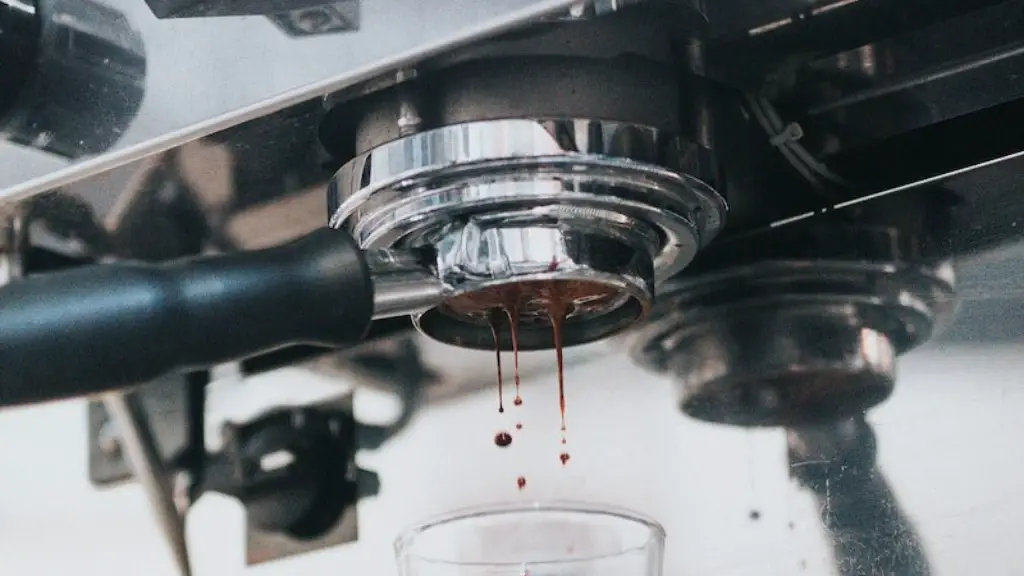Coffee consumption is a favourite habit of many people and can sometimes pose a dilemma when it comes to new motherhood. New mothers may question whether it is safe or even advisable to enjoy their beloved cup of joe while nursing their newest little arrival.
The most up-to-date recommendations from doctors and experts agree that moderate caffeine consumption while breastfeeding can be safe for both mother and baby. Moderate consumption is defined as one to two cups of coffee daily, which calculates to a maximum of 300 mg of caffeine per day. A cup of coffee typically contains around 100 mg of caffeine, but this will depend on the size of the cup and how strong the coffee is.
However, some experts and medical professionals caution against drinking more than one cup of coffee a day and advise avoiding caffeine entirely if the mother is struggling with low milk supply or any other breastfeeding related issues. The use of caffeine by breastfeeding mothers may sometimes result in negative effects such as an irritable, unsettled and fussy baby.
The American Academy of Pediatrics has published that moderate amounts of caffeine do not have any harmful effects on infants. Though caffeine does pass into breast milk, a newborn baby’s liver is still developing and may struggle to process it in the same way as an adult. Therefore, it is important to be mindful of the amounts consumed.
It goes without saying that breastfeeding mothers should have a balanced and healthy diet, and regular caffeine consumption may be beneficial in providing energy and alertness for busy mothers. Despite strong coffee being a great way to get that morning kick-start, drinking too much caffeine can lead to adverse effects, such as headache, restlessness, irritability and even depression, so it’s important to keep the intake to reasonable levels.
For new mothers who just aren’t ready to give up their daily cup of coffee but are worried about the effects of the caffeine on their baby, an alternative option may be decaffeinated coffee. Decaffeinated coffee still offers the same enjoyable taste but with around 98-99% of the caffeine removed.
Coffee Alternatives
Although coffee is a great source of caffeine, it is not the only option available. For breastfeeding moms looking for a caffeine fix, there are a few alternatives that can help get that energy boost with the added benefit of being good for their baby and overall health.
Green tea and oolong tea can be good healthy alternatives to coffee, and provide an abundance of health benefits. These teas contain much less caffeine than coffee and are perfect for the breastfeeding mom looking for an energy boost while also providing a calming and therapeutic effect.
Other alternatives to coffee include chocolate, which contains a mild amount of caffeine, as well as herbal tea and kombucha, a fermented drink made from tea and sugar that also contains some caffeine.
Other Considerations
As mentioned before, the amount of caffeine that is transferred to a nursing baby depends on the amount of caffeine consumed by the mother. Therefore, it is important to consider when to drink coffee, as well as the total daily amount that is consumed.
It is best to avoid consuming coffee within an hour or two before breastfeeding, since caffeine quickly passes into breast milk and so the amount can be highest in the milk just after drinking. Drinking coffee in the morning, or having it at intervals throughout the day will mean that the amount of caffeine can be lower when it is time to feed.
How a breastfeeding mother processes caffeine can also differ significantly from individual to individual. Therefore, it is important to be aware of any changes in the baby’s behavior after the mother consumes caffeine, and make a decision based on what works best for mother and baby.
How to Cut Down on Caffeine
Despite a moderate cup of coffee having potential health benefits for the nursing mother, it is still important to keep in mind that more is not always better. If the mother is consuming more caffeine than recommended, there are certain ways to help her reduce her intake.
A great idea is to switch to decaffeinated coffee. As mentioned previously, decaf coffee still contains the same great coffee taste, but with around 98-99% of the caffeine removed, making it the perfect substitute for nursing mothers that are looking to reduce their caffeine intake.
For those looking to cut down on coffee altogether, smoothies or power health drinks can provide an energy boost that can help to start the day. Other alternatives include roasted nuts, yogurt, honey and fruit.
Caffeine in Other Products
It is important to not just consider the caffeine content of coffee, but also to keep an eye on other caffeinated products that a mother may be consuming. Caffeine is also found in certain soft drinks, energy drinks, chocolate and processed foods, so it is essential that a mother is aware of the caffeine content in the foods and beverages she consumes.
Though the official recommendations encourage a moderate caffeine intake while breastfeeding, it is important to remember that what may be moderate for some may not be moderate for others. Each mother and baby is unique, so it is necessary to pay close attention to the effects of caffeine and closely adjust the intake accordingly.
Conclusion
In conclusion, moderate caffeine intake while breastfeeding has no known harmful effects on newborn babies. However, it is important for breastfeeding mothers to nevertheless be aware of the potential effects. If the mother is struggling with low milk supply issue




